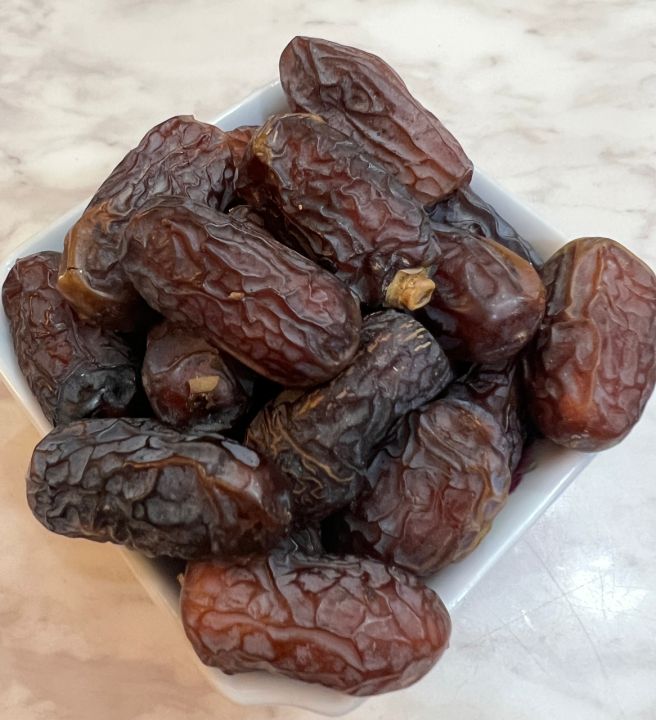Buah Kurma: Sustainability Concerns in Malaysia

Introduction to Buah Kurma
Buah Kurma, or dates, have become increasingly popular in Malaysia due to their sweet taste and nutritional benefits. However, as the demand for dates rises, it is crucial to examine the sustainability of the date trade in Malaysia. In this blog post, we will delve into the sustainability concerns surrounding the Malaysian date trade, focusing on dates. We will explore the environmental impact of date cultivation, production practices, and the social implications of the industry.
The Environmental Impact of Date Cultivation
1. Water Consumption
Date palms require a significant amount of water to thrive, especially during the hot and dry climate of Malaysia. Large-scale date cultivation can put a strain on water resources, leading to over-extraction from local water sources. This can have negative consequences for the surrounding ecosystems, affecting wildlife, habitats, and overall water availability.
2. Land Use and Deforestation
Expanding date plantations may require the conversion of natural habitats, including forests and wetlands, into agricultural land. Deforestation can result in the loss of biodiversity, disruption of ecosystems, and the release of carbon dioxide into the atmosphere. It is important to assess the extent of land conversion and implement sustainable practices to minimize the ecological impact.
3. Pesticide Use
The use of pesticides in date cultivation can have adverse effects on the environment. Harmful chemicals may enter the soil, waterways, and surrounding ecosystems, posing risks to wildlife and human health. Sustainable alternatives and integrated pest management practices can help reduce pesticide use and minimize environmental contamination.
Social Implications of the Date Industry
1. Labor Conditions
The date industry relies heavily on manual labor, including planting, harvesting, and processing. Concerns have been raised regarding the working conditions and welfare of the laborers involved. It is essential to ensure fair wages, safe working conditions, and the protection of workers’ rights throughout the date supply chain.
2. Local Communities
The expansion of date plantations can impact local communities, particularly indigenous groups and small-scale farmers. Land acquisition for large-scale plantations may displace local communities and disrupt their traditional livelihoods. Engaging and consulting with local communities is crucial to mitigate the social impacts and ensure the equitable distribution of benefits.
Sustainability Initiatives in the Malaysian Date Trade
1. Water Management
Efficient water management practices, such as drip irrigation and water recycling systems, can help reduce water consumption in date plantations. Implementing technologies that monitor soil moisture levels and optimize irrigation schedules can minimize water wastage and promote sustainable water use.
2. Organic and Integrated Pest Management
Encouraging organic farming practices and integrated pest management systems can minimize the reliance on synthetic pesticides in date cultivation. These approaches prioritize natural pest control methods, crop rotation, and the use of beneficial insects to maintain a healthy ecosystem while reducing chemical inputs.
3. Certification and Standards
Certification programs and sustainability standards can play a vital role in promoting responsible practices within the date industry. These initiatives assess and verify the environmental and social performance of date producers, ensuring compliance with sustainable criteria and providing consumers with transparent information about the products they purchase.
Conclusion
As the popularity of Buah Kurma continues to grow in Malaysia, it is crucial to address the sustainability concerns surrounding the Malaysian date trade. The environmental impact of date cultivation, including water consumption, land use, and pesticide use, must be carefully managed to minimize ecological damage. Additionally, social implications such as labor conditions and the well-being of local communities should be taken into account. By implementing sustainable initiatives such as efficient water management, organic farming practices, and certification programs, the Malaysian date trade can strive towards a more sustainable and responsible future.
Key Highlights:
– The Malaysian date trade, particularly Buah Kurma, raises sustainability concerns.
– Date cultivation can impact water resources, land use, and contribute to deforestation.
– Pesticide use in date production can have adverse environmental effects.
– Labor conditions and the welfare of workers need to be addressed.
– Local communities may be impacted by large-scale date plantations.
– Sustainable initiatives include water management, organic farming, and certification programs.
– Ensuring the sustainability of the Malaysian date trade is crucial for long-term viability and environmental stewardship.